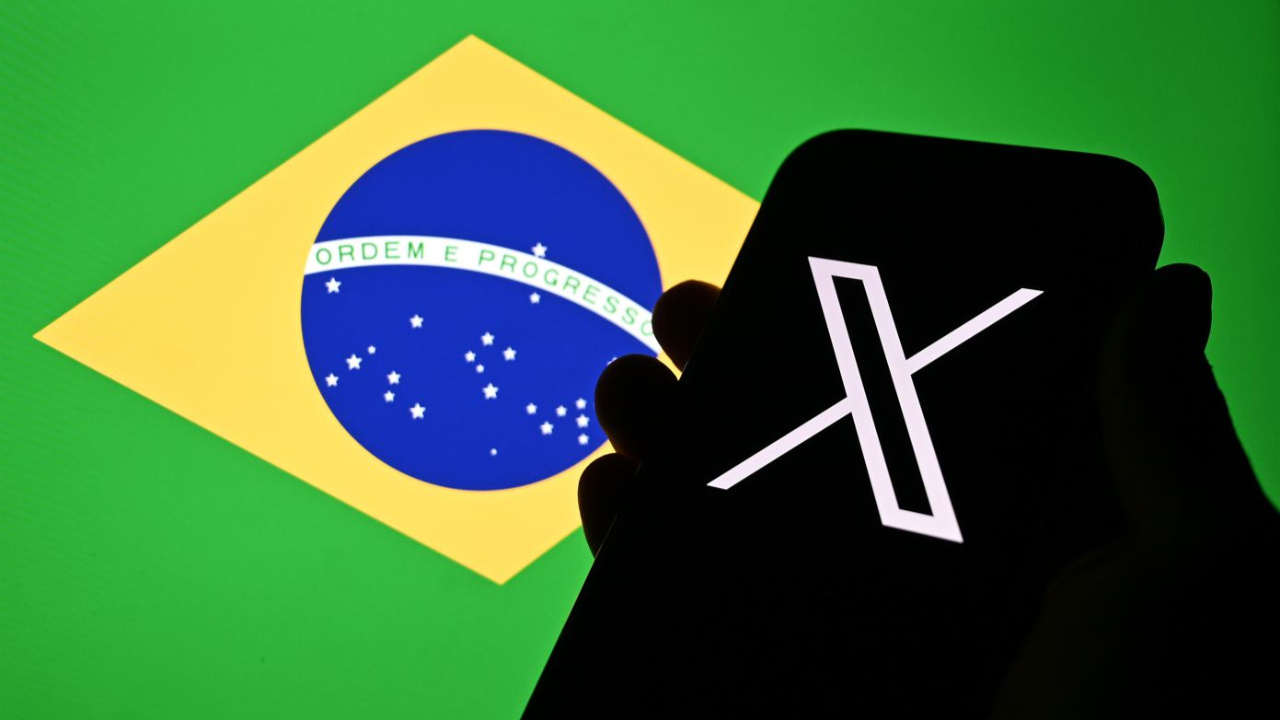by BRIAN MIER

Millions of Brazilians woke up on August 31 in a country without X, after the Supreme Court ordered the national telecommunications agency to block the social media platform. This move culminated over a year of X’s refusal to follow Brazil’s telecommunications laws, particularly those requiring deplatforming of suspects in internet crime investigations. In a single day, X lost 22 million users, while alternative platform Blue Sky gained 2 million new Brazilian users in just three days. The order to ban the platform initially came from Supreme Court Minister Alexandre de Moraes, a figure vilified by the Bolsonaros and the international far right, and was ratified by a 5-0 vote in the Supreme Court’s 1st working group three days later.
Musk closes offices to aviod liability, Brazil freezes assets
The Court order came 12 days after Elon Musk closed X’s Brazilian offices to avoid liability for criminal charges against the company. With X owing R$9 million in fines, the Supreme Court froze the Brazilian assets of Musk’s company Starlink—a minor player in Brazil’s internet service provider industry, serving 250,000 clients in a country of 220 million. After the ban, a furious Musk used his own social media platform to attack one of Brazil’s 11 Supreme Court Ministers, Alexandre de Moraes, inadvertently doxing allies by publishing court documents containing their personal data.
Hailed as a victory for sovereignty while criticized by the far right as an affront to U.S. free speech principles, the X ban is the latest chapter in over a year of conflicts between Brazil and the world’s richest man.
To understand how Brazil reached this point, we must go back to October 18, 2018, between the first and second rounds of Brazil’s Presidential elections. That day, investigative journalist Patricia Campos Mello published an article in Folha de São Paulo exposing a group of Brazilian businessmen for spending R$12 million to slander presidential candidate Jair Bolsonaro’s rival, Fernando Haddad, on Meta’s WhatsApp platform. Using illegally acquired personal data, the group microtargeted segments of the population with disinformation. For instance, evangelical voters were bombarded with doctored photos falsely claiming that, as mayor, Haddad distributed baby bottles with penis-shaped nipples to São Paulo pre-school students. As a result, Brazil’s Superior Electoral Court—comprising 3 Supreme Court Justices, 2 Superior Court Judges, and 2 lawyers—immediately launched an election fraud investigation.
This led to a surge in threats against judges in the Supreme and Superior Electoral Courts, extending to their families and calling for a military coup to shut down the Supreme Court. Among those making the call was Jair Bolsonaro’s son, Congressman Eduardo, who recorded a YouTube video seen by hundreds of thousands, saying, “All you need to shut down the Supreme Court is a single soldier or corporal […] Do you think anyone will protest in its defense?”
Unlike some countries, the Brazilian judiciary lacks its own police force. According to the 1988 Constitution, judiciary police duties are assigned to the regular police. The system’s failure to adequately address threats against Supreme and Superior Electoral Court judges prompted Chief Justice Dias Toffoli to issue a decree on March 14, 2019, allowing Supreme Court Minister Alexandre de Moraes to directly supervise a federal investigation into these threats.
As a result, Moraes became the main target of a hate campaign by Bolsonaro’s allies, who argued that, as a victim, he was unqualified to investigate his aggressors. Meanwhile, online threats against the judiciary intensified.
On October 29, 2021, the Superior Electoral Court announced the results of its investigation, with 5 of its 7 Justices confirming that the Bolsonaro campaign had used social media to commit election fraud in 2018. Unable to determine the fraud’s impact, the Court issued no punitive measures. However, Justice Moraes, set to take over the Presidency of the Superior Electoral Court six weeks before the 2022 presidential elections, announced that they now understood the scheme and that anyone using similar tactics in 2022 would “go to jail for attacking elections and democracy.”
Moraes, a conservative appointed to the Supreme Court by coup president Michel Temer in 2017, was already a target of Bolsonarista claims of a “communist dictatorship of the toga.” His upcoming role as head of the electoral court during the presidential election drove the Brazilian far-right into a frenzy.
As destroying the Supreme Court and installing a military dictatorship became the Bolsonarista rallying cry, de Moraes ordered several preventive arrests. These included Congressman Daniel Silveira for abusing his authority by repeatedly urging the army to shut down the Supreme Court while defying court orders. Sara Giromini, who styled herself as Sara Winter after the English fascist leader, was also arrested. She set up an Azov-inspired paramilitary camp outside Brasília, then led followers to camp out in front of the Supreme Court, launching increasingly large fireworks at the building for three days while making online threats against de Moraes and his family.
United World International for more
